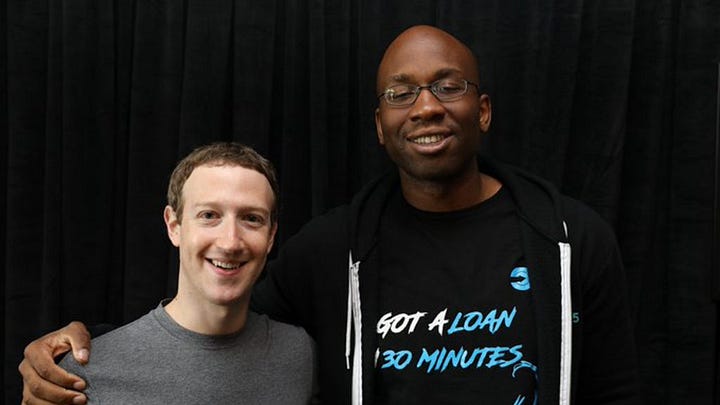A couple of weeks ago, Carbon, your favourite neobank, sent an email to all its debit card holders announcing that we would be discontinuing all card operations on the 19th of June. We weren’t hiding this fact and even followed up with a few reminders. So I was surprised to find out that a member of the 4th estate had gone deep into our Engineering department to ask one of my colleagues whom they had never met for more information. Apparently, they “got a scoop” that we were discontinuing our card operations and wanted to know i) the kind of “traction” we were experiencing with cards and ii) if this was a signal that Carbon was ‘scaling down’. This “I got a scoop” approach to life has existed too long in our ecosystem and needs to stop. And whilst it can get some quick thrills, its impact is not long-lasting. Like a dosage of viagra that …..Ngozi stop; there may be children reading. Begging your pardon, dear reader, I have been taking writing classes and practising the use of analogies to ram home (oops 😳) a point. Let me elaborate.
I got a scoop
For those who have been burnt by journalists in the past, I am afraid this is not one of those articles to bash our esteemed media, our renowned 4th estate. If it were, then I would point out that “I got a scoop” is the perfect way NOT to write a story.
The “I got a scoop” approach screams three things:
I have not built relationships in the sector but maybe a stranger will show kindness to me
I have not done any analysis, but who needs that when you have a scoop? Why won’t some random engineer share confidential information since I said ‘pretty please’.
As long as there is something new and unpublished, then this is immediately worthy of an article. Especially if it is about distress.
But like I said, I am not bashing, and I hope to prove this to. you to you. I can’t help but point out, however, that there does seem to be a belief that the best journalism is typified by previously private or insider information yet to make its way into the public domain. I think this is flawed.
A better approach
The best articles I read are those that use information hidden in plain sight and strung together to provide real insights or new knowledge. Not the “I got a scoop that GB of Flutterwave only eats ewedu if there is yellow shrimp inside; or “Did you know that X company has sacked 40 people?". Oh my God, wow - people are being laid off? That is so rare and unexpected in the tech world, apart from the fact that Facebook and Google (and others) have been laying off people so often and consistently that it feels like their business model is like a modern-day version of the show Survivor.
Don’t get me wrong - this information is important (and I do want to know more about GB’s ewedu fetish) but only in so far as it is used to provide insights. Carbon has said it is discontinuing operation; as a neutral observer, the essay I would want to read would
make a stab at calculating the unit economics of running card operations and do a comparison of fintech to banks
float a few hypotheses as to why Carbon is discontinuing cards. I don’t know maybe guess randomly at
high fixed cost of card operations
increasing low disposal income of customers, infrequent use of cards compared to Western markets
estimate the distribution of cards amongst Carbon, fintech and competing banks and do a back-of-the-envelope calculation of income potential for Carbon
just for shits and giggles, maybe even compare these three numbers and ask whether it is the right decision by Carbon
But hey, what do I know? I am just a guy who tries to write tongue-in-cheek articles with inappropriate analogies—that’s just me.
What we need
The media have an important role in improving our economy, and there has been significant progress over the last few years. There are no more fawning press releases disguised as articles (okay, there are still a few—please can we stop?), and importantly, a lot more holding founders to account for inappropriate practices or keeping them honest about their words.
But we need to move away from the idea that any failure or shutting down of operations is necessarily bad. I would argue that the paucity of failure stories is actually a sign of a lack of experimentation …..or synonymous with fear by founders that such actions will be perceived in a negative light. We need these actions to be evaluated in full as everyone benefits. Looking across the globe, Facebook shut down its metaverse business, but there was no talk of its business scaling down - rather, its investors rewarded it with a higher share price for taking bold and decisive action. My enemies will laugh and pour scorn on my words, shouting, “Who do you think you are - you think Carbon is Facebook? You guys are comparing yourself to Zuck?”


Zuck and us are not mates. But maybe he imparted some wisdom when we had drinks. Ok, ok, in my case, it was just cold water after a hot Lagos run, but maybe Chijioke shared a Coke and wisdom with him. But hopefully, you get the point. Entrepreneurship is like an opera with highs and lows - sometimes, the strategy that is being applauded might be fatal. And sometimes, what may seem rough may be the results of considered analysis. But the devil is in the details. As a parting shot, there are real scoops everywhere. Currently, I am aware of at least 2, but even better yet, journalists should take a founder to lunch (I like Nobu in Palo Alto or Kaly in Lagos), and she will teach you a thing or two about her business and some of her challenges. If there is genuine interest, there are so many great stories that have not yet been written. Speak to enough founders in the same space, and you will find that even without any confidential information, you can write a thoughtful article that is insightful to not just the general public, but for all the founders themselves. Thank me later, but take me to lunch first!
Ok, rant over, and maybe some introspection!
We have all been living on scoops!
When I take a step back with the benefit of hindsight (and a card operation bill denominated in USD$), I question why practically all neobanks are pushing cards or even getting into it. Was this the right strategy for ALL of us, or was Carbon just unlucky?
Too many founders run on scoops at different points, and I am as guilty as the next. If I had done the analysis suggested above and truly evaluated the opportunity, I don’t think I would have been that gung-ho about pushing a strategy to provide consumers with their fifth debit card. The decision might have been the same, but perhaps with more respect for the potential risks.
Maybe I had a scoop that if we launched a debit card, customers would trust Carbon more. Because, hey—just like those big banks you trust, I have the same bright, shiny card, marketed on billboards with happy-go-lucky youth with funky haircuts and bright clothing.
Maybe I had a scoop that if I said Carbon issued debit cards, Mr & Mrs VC would think “Wow, just like Nubank” and share more dollar love with Carbon.
Maybe I had a scoop that if we launched cards, it would be a nice distraction from the difficulties of going deep and attaining mastery in the other parts of the business. Anyone can achieve quick traction off small numbers but scaling anything is a challenge.
There have been so many scoops:
I got a scoop that if
I push a colourful presentation and say I am the X for Africa, I will get seed funding
I get into Y-combinator, my company will be more valuable than the legacy competition even though they have 100x my revenue and have been profitable for 20 years
I speak confidently and fast saying the words paradigm shift, disruption and innovation multiple times, I will raise series B funding even with negative gross margins
Can you see the pattern?
I have a scoop
Seriously I do.
A few years ago, one of my competitors took me aside and said, “I hear Carbon is expanding to Kenya - don’t do it”. They were already there, and so I am sure part of me was like, so you don’t want me to come and eat goat with you. Needless to say, we did expand to Kenya and whilst the details are for another article, I wish we had heeded their advice. Now let me pass it forward and tell the fintech startups who are looking at getting a debit card. It may be the right decision - but really do your analysis. Take it as my scoop to you.




Awesome read again boss.
Your writing is as much about good writing as it is about a topic. I appreciate it in these days of AI generated stories.